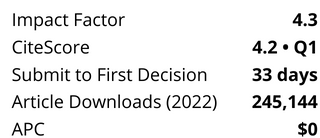Eight pilot-scale runs were performed to evaluate the impacts of coagulant type, filter loading rates and temperature on the removal of seeded Cryptosporidium oocysts by in-line filtration. The coagulant was either aluminum sulphate or ferric chloride, the filter loading rate was either 5 or 10 m/h and temperature was controlled at 20 or 4.5°C. Cryptosporidium samples were collected on an hourly basis during each run and analysed by solid phase cytometry. Depending on the operating conditions, observed average Cryptosporidium removals ranged from 1.0 log (std dev.=0.2 log) to >4.2 log (std dev.=0.1 log).
This content is only available as a PDF.
© IWA Publishing 2004
You do not currently have access to this content.




%20cropped.png?versionId=5947)